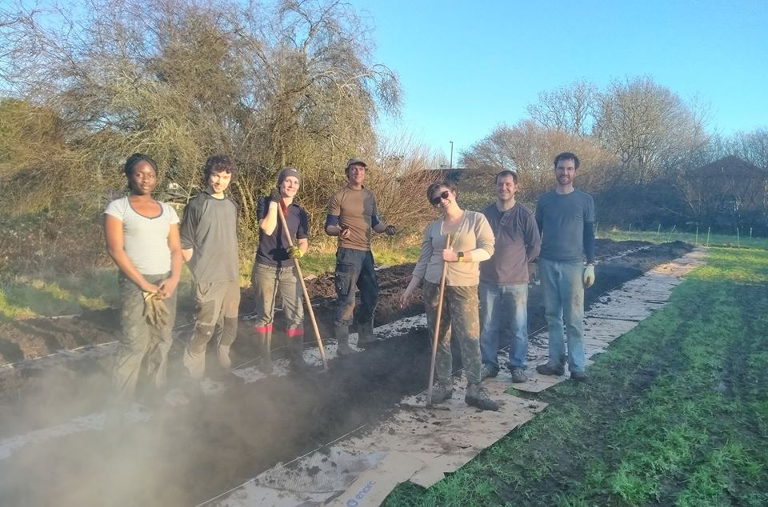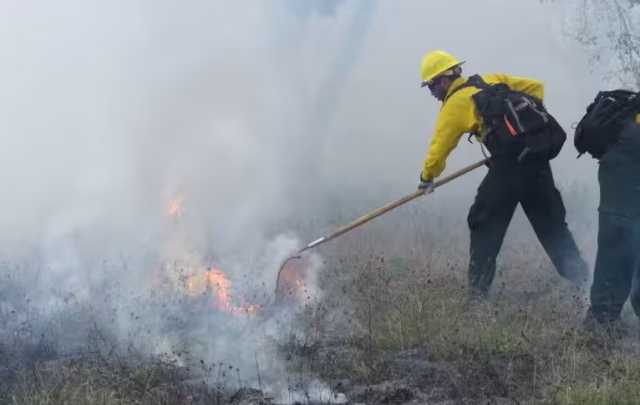“We would die from starvation. It’s that simple.” Or so TV botanist James Wong recently tweeted in response to the title question, taken from a BBC feature. In this post I’m going to make the case that we wouldn’t, that it isn’t simple, and that in fact our chances of starving are probably higher – albeit in some quite unsimple ways – if we don’t start eating more food from local farms.
A good many of the comments under James’s tweet rehearsed various misconceptions about local food, so in a change to my intended programme I feel the need to put another side to the story in this post. If what I write here whets your appetite, so to speak, I cover these points in more detail in my forthcoming book, A Small Farm Future.
So…to answer the opening question, it’s necessary for some definitions – who is ‘we’, and what exactly does ‘local’ mean? Many of the commenters under James’s tweet took the question to mean ‘what if we, the inhabitants of Britain, only ate food that was grown in the country?’ which seems a reasonable starting point. If ‘we’, so defined, had to do this tomorrow, we’d probably struggle. But to me, the larger question is could we do it if we wanted to, given time to prepare?
Various commenters invoked the lessons of history in support of James’s assertion, correctly pointing out that Britain hasn’t been self-sufficient in food for two centuries. But what this tells us is that self-reliance hasn’t been a priority of national food policy over that period, not that it’s impossible. This raises the interesting question of why that’s so and whether it might change in the future, points I’ll come to shortly. First, though, it’s worth asking whether Britain could conceivably feed itself if it so wished.
Under current conditions, the answer seems to me a pretty clear yes. In 2018, the UK grew 13.5 million tonnes of wheat and 3.2 million tonnes of potatoes for human consumption on an area that amounted to about 31% of its arable land and 10% of its total farmland. Those two crops alone provide more than enough protein to meet the daily recommended amount for all of Britain’s 66.4 million people over a whole year, and about 85% of recommended calorific intake. It would be easy enough to meet the remaining 15% from crops on the rest of the farmland, or by expanding wheat and potato production a little.
We can make more stringent assumptions and still attain self-sufficiency. Suppose we grew wheat and potatoes organically without high-energy fertilizer inputs. If we assume rock-bottom-of-the-range organic wheat yields of 2.5 tonnes per hectare and organic potato yields of 20 tonnes per hectare (the corresponding figures for conventional crops currently are about 8 t/ha and 45 t/ha respectively) then we could meet the UK population’s total energy and protein needs even with these low yields on just 75% of the country’s current arable farmland area.
A diet comprising solely wheat and potatoes might sound grim, but bear in mind we’re feeding the entire population’s macronutrient needs from them on less than 20% of the country’s land area even assuming super-low yields. That gives a lot of space – all those pastures, orchards, gardens, allotments, city farms and all the rest of it – to lively up our diet with more variety. However hard it might be for us to shift to food self-reliance, the reason isn’t agricultural carrying capacity.
Commenters under James’s tweet raised various other objections to the possibility of British food self-reliance, but they mostly seemed to me exercises in whataboutery that missed their target. For example:
What about the war – Britain wasn’t even food self-reliant in the 1940s when the pressure was on and the incentive for it was sky-high. The main pressure that was on during the war was to win it. Improving national food self-reliance was an important but subsidiary goal to that overriding objective. With a vast amount of resource and labour devoted directly or indirectly to fighting, it’s hardly surprising that we failed to achieve food self-sufficiency.
What about the winter, when food is scarce? Seasons are pretty predictable, at least for now. So if you’re not importing food you can plan ahead. With modern refrigeration and other highfaluting, energy-intensive methods this is a doddle. Even without it, our forebears have bequeathed us numerous cunning techniques: canning, salting, smoking, clamping, drying, pickling and … remember Lent? … fasting. If all else fails, we can even grow Hungry Gap kale.
What about staples like oranges and coffee – we simply can’t grow them here. True. But they’re not staples. I’d sure miss coffee though. Next.
What about the Irish potato famine – national food self-reliance didn’t work out too well there! There’s a long answer to this, and a short answer. The short answer is that famines are rarely just about an absolute lack of food, and invariably involve questions of social entitlement – a view famously articulated by Amartya Sen in his book Poverty and Famines. When a famine strikes, look first at what’s going on socially and politically, not at the Malthusian equation of crop yields and mouths to feed.
OK, but what about major crop failures and poor seasons – you can’t always provide for your needs locally in the face of these fluctuations. Farming systems oriented to self-reliance build in resilience to crop failure, and most of them can survive a year or two of bad harvests pretty easily, except in situations like 1840s Ireland when people are forced into monocropping on tiny plots. But it’s true that markets for non-local food can sometimes be a boon in times of dearth. A couple of points to bear in mind here, though. First, money can buy you food, but only if you have money, so again we need to look at social entitlements. And second, if it’s not too obvious to say it, money doesn’t actually create food, so it’s unwise to assume that access to the former guarantees access to the latter. True, money can incentivize people to create food and sell it, but only under certain circumstances and in the face of various constraints. The more that we attend to securing our food needs locally under our own power, the less vulnerable we are to these circumstances and constraints outside our control.
oOo
Some further thoughts to close on these issues of food supply and money. Going back to the objection that Britain hasn’t been food self-reliant for two centuries, the missing piece in this puzzle is money. In the 19th century, Britain could buy grain more cheaply from abroad than it could produce it at home … and it had plenty of money, because all those people who weren’t farming were toiling in factories. But with transport and communications being what they were back then, we grew most of our own fruit and vegetables. Nowadays, the situation is reversed. We’re more or less self-sufficient in grain, but import a large proportion of our fruit and vegetables – essentially because grain is more fuel-intensive to grow whereas fruit and veg are more labour-intensive, and the relative prices of fuel and labour in Britain currently favour the former. Britain’s lack of food self-reliance over the last couple of centuries has a lot to do with price signals, and nothing much to do with ecological carrying capacity.
But things can change. Most countries are net importers of energy. Most of the world’s bread-basket regions are threatened by climate change and water scarcity. We need to stop using fossil fuels. While small, wealthy countries can at present pick and choose where to obtain their food on global markets, there is not – to paraphrase a former British prime minister – a magic global food surplus tree that will keep on providing for everybody so long as we water it with money. We’re so often enjoined nowadays not to romanticize the ability of peasant societies and local agricultures to achieve self-reliance. I think we’d be better off not romanticizing the ability of market trade to continue buying us out of food self-reliance. But if we do keep romanticizing global food trade, I think we’re far more likely to starve, sooner or later. This is for a number of reasons, including the fact that relying on a global food commodity system that responds to short-term price signals (driven mostly by cheap fossil fuel prices) and not long-term biophysical signals like a heating climate incentivizes practices that damage agroecosystems and earth systems. Meanwhile, cheap global food commodities already undermine local agricultures in places where people lack the economic opportunities to buy themselves out of hunger – more starvation.
So, if you’re rich enough to think about these things, I’d commend the opening question as a handy personal resilience health-checker. Are there farms and gardens within walking distance of where you live that can provide for all your food needs, and those of all the other local residents? More to the point if you’re not yourself a farmer or a grower, are there people within walking distance of where you live who are likely to be willing to provide for your food needs in future scenarios of energy, climate or economic turbulence? If not, perhaps you might start buying more from local farms in order to help stimulate the better local supply that you need, or even better become a local farmer yourself. Or move to where your answer to that question could conceivably be ‘yes’. It seems likely that in the coming decades a lot of people will be on the move, looking for places that can service their food needs in a climate-challenged and energy-constrained world. Might as well get going now…






